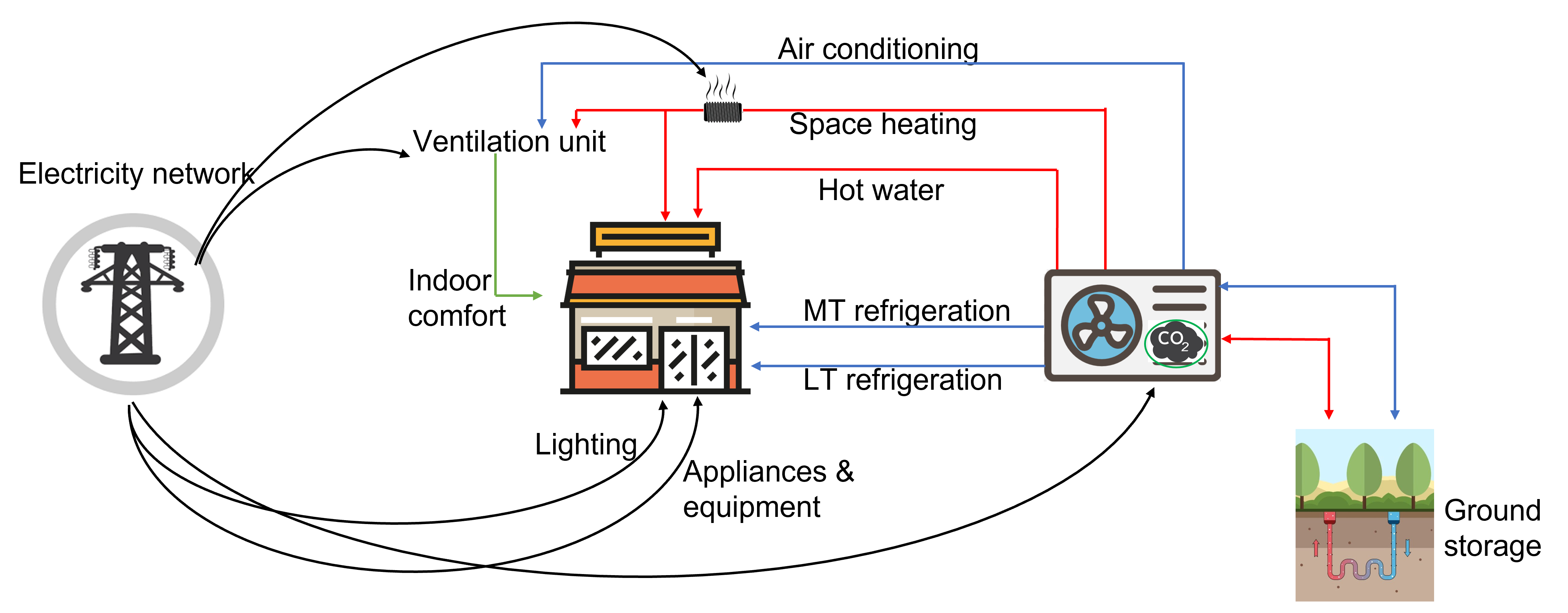Building state-of-the-art (SotA) supermarket: Putting theory into practice
This project will apply the knowledge accumulated through the research in supermarket energy systems by building a unique demonstration case study is built where today’s most efficient, environmentally friendly and cost-effective supermarket will be designed, installed, monitored, thoroughly evaluated, and well documented.
Background
Supermarket refrigeration systems working with Carbon dioxide (CO2) as a refrigerant have been widely applied in northern Europe especially in Scandinavian countries. The most advanced CO2 refrigeration system, referred to as state-of-the-art system, is a single integrated system providing all refrigeration, heating and air conditioning needs with quite high efficiencies and competitive installation cost. This system has been defined and studied in the Effsys EXPAND project, P04: “The energy efficient supermarket of tomorrow”.
Our studies show that the system is expected to offer at least 15% annual energy savings compared to standard CO2 system and at least 25% compared to conventional systems with HFC’s; making the system the most efficient that can be installed today in Sweden. The energy savings are especially important since the EU F-gas regulations means that the installation of CO2 based refrigeration systems for supermarkets will further accelerate due to the ban on installing systems with HFC’s, which will practically be phased out from supermarket application starting from 2020.

Aim and objectives
• The proof that a SotA refrigeration system in a supermarket can have at least 15% less annual energy use compared to standard CO2 system and at least 25% less compared to conventional systems with HFC’s.
• An optimum control strategy for a proper performance calculation. The supermarket’s energy system has full instrumentation in all energy sub-systems and close monitoring, as if it is a test rig running in a laboratory.
• Thoroughly evaluated supermarket energy system through modelling and well instrumented field measurement.
• Modelling and analysis tools/methods for supermarket energy systems that are well verified.
• Unique reference case at national and international levels; reference case manual
• Proposal for the next generation of state-of-the-art energy system for supermarkets
Outcomes
At the end of this project, today’s most efficient, environmentally friendly, and cost effective energy system for refrigeration, heating, and air conditioning in supermarkets will be built and thoroughly evaluated. The calculation tools and the field measurement analysis methods will be validated using a high quality data. Guidelines of how to design, instrument, monitor, evaluate, and compare energy systems for supermarkets will be documented.
Furthermore, the next generation state-of-the-art system will be proposed and compared to emerging alternatives.
Project publications
Journal:
Conference:
M.Sc. thesis reports:
Project contact persons
Project leader (Supervisor)
Co-supervisor
PhD student










